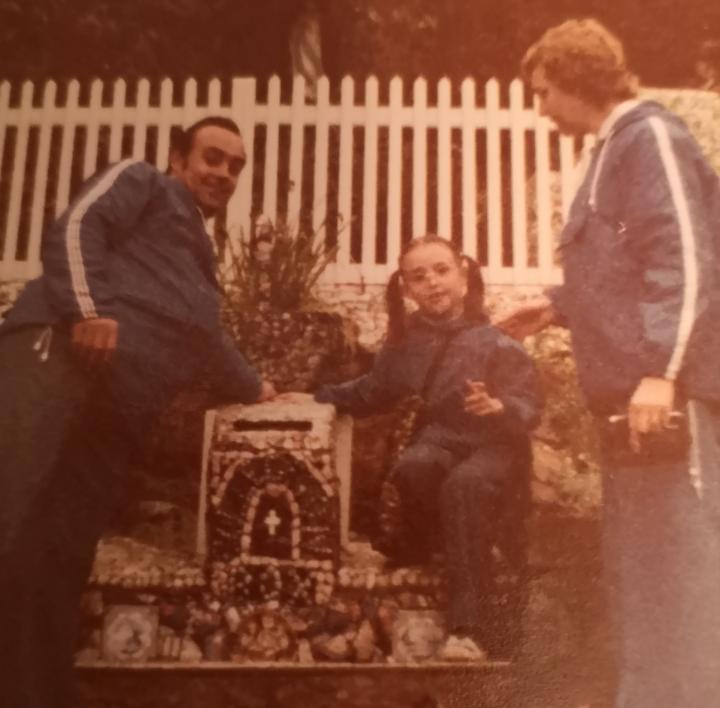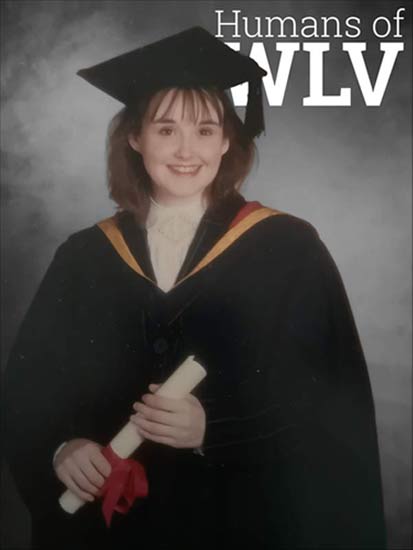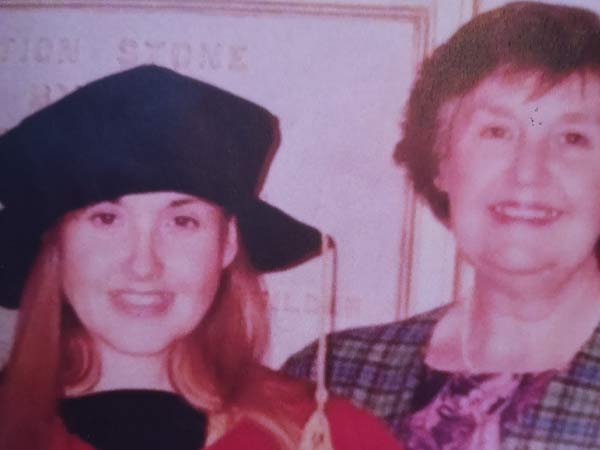Debra's Story
Going to University wasn’t a thing in my family
I grew up in a hardworking, working-class family that prized earning a living, looking after your family and ‘making a contribution'. ‘Making a contribution’ meant going out to work, earning, contributing to your family’s finances and through this, not taking from society (accessing the NHS, receiving sick pay etc) without first paying into the system. Education was a means to an end. You went to school until you were old enough to get a job.
My parents were blue collar workers – they both worked in factories but had worked hard and made their ways into middle management. My mum was a Supervisor and my dad a Superintendent, and they hoped that I would do a little better than them and perhaps work in an office one day. This meant that lots of my friends thought I was posh.
I wasn’t posh – far from it; I was just different, I liked reading, I liked learning and soaking up as much knowledge as I could. I had an old set of encyclopaedias (for those of you who were born after the year 2000 – encyclopaedias were the internet in book form) and they were my most prized possession. I spent hours reading them and repeating the various facts I could remember from them. Then one day, whilst watching TV I learned about a place called ‘University’ where people taught interesting facts like the ones I read about in my prized encyclopaedias, and I wanted to know more.

Initially, I thought that University was only on the TV, and late at night. I used to sneak downstairs when my parents were asleep so that I could watch the ‘Open University’ on the only TV in the house; minding not to step on the 5th and 11th step down because they creaked and would give me away. Sometimes my parents would find me curled up asleep in the chair next to the TV when they came downstairs in the morning and wondered why I was there. Now they are both gone, I regret that I never told them why this was the case. Then, one day, as I flicked through the TV channels I stumbled across ‘University Challenge’ and realised that there was more than one University and that Universities were places, not TV programmes.
By the age of 9 I found myself grappling with questions like ‘what is the nature of reality, and what is the point of our lives?’ but luckily, I had patient junior schoolteachers who not only put up with my strange questions in class but tried to help me navigate them. That said, I was never considered clever even though I excelled in maths, music and history. I struggled with spelling and despite loving to read, reading really hurt my eyes. I would be nearing the end of my secondary education when this was recognised as dyslexia. In fact, for quite a bit of my secondary school life I was treated like the class dunce, hauled out in front of everyone, and forced to read aloud whilst the teachers encouraged my fellow pupils to mock me as I stammered and stumbled over the words that I could see but could not say. They thought that this would encourage me to do better.
Then a new English teacher joined the school, and she changed my life. She was teaching the top set English class, and for some reason, she had sent for me. When I knocked on her classroom door, she invited me in and told me to take a seat, and then continued to teach the lesson. I was confused, and scared but listened, and stayed there until the end of the session. When the bell rang, she told me to stay back and asked if I had dyslexia. I had no idea what this meant. So, she went on to explain that she had read through everyone’s work in the year and had been impressed with what I had written, my depth of understanding and the linkages that I had made between areas and topics. She felt the things that I had written were far more advanced than my peers (this was all down to the things that I had learned from the Open University and in the Encyclopaedias). However, she had also noted that I couldn’t ‘spell for toffee’. She said that she thought that this was dyslexia, that it was nothing to be upset about, that she was dyslexic, and she was going to teach me her ways of coping with it.
I was a girl from Dawley and Dawley girls don’t go to University
With my English teachers help, I sat some of my O’Levels a year early and by the time I was old enough to get a job, I had both O’Levels and AS’Level Qualifications. As a result, I went on to work in an office, just as my parents had hoped I would. By the age of 19 I had been promoted to the post of Operations and Logistics Manager for a haulage company and managed a team of lorry drivers, van drivers and mechanics as they moved goods around the UK and Europe, and I could often be spotted behind the wheel of a 7.5 tonne lorry (much to my dad’s amusement and my mum’s disgust). However, I never lost my love for learning and I also continued to study for A’levels at Night School (college in the evenings).
I was 22 when I started my degree. I was convinced that I was going to be the oldest member of my class. The first day that I walked through the doors of the University I was petrified, and secretly wished that University was on TV rather than in real life. I was a girl from Dawley and Dawley girls don’t go to University. However, I had only been at the University for two days when I heard someone shout across the coffee bar ‘how bist jockey’ in a Dawley accent, and I knew that I had made the right choice to join the University of Wolverhampton.
I studied a BSc (Hons) in Psychology and loved every minute of it. I found a place where it was okay to be me – a working class girl with a passion to learn. What more there were lots of other people like me. However, it wasn’t always easy, my dad was diagnosed with cancer in my first year of study, and died in my final year, but my lecturers were so supportive – more than I could ever have hoped for. They encouraged me to keep going and to get my degree in memory of my father. I can wholeheartedly say that I got my degree because of the support and care that I was offered at this University. Because of this, I wanted to give something back; this was why after studying a PhD, then moving to the University of Birmingham to complete a Post-Doctoral Fellowship, I came back to the University of Wolverhampton to work.
All students have an equal chance for their University education to change their lives
Through working at the University, I have also been able to engage in educational research, and to help the University in its mission to ensure equity of experience for all our students.
Because of my experiences at secondary school, it is immensely important to me, that all students have an equal chance for their University education to change their lives and help them achieve their dreams. Again, the University supported this, and I have been lucky enough to be the recipient of a number of University supported Fellowships (Early Career Researchers’ Award Scheme, Medici Fellowship, a University of Wolverhampton Learning and Teaching Fellowship and the Aurora Programme); these have allowed me to continue this work and eventually apply for a promotion that led to this dyslexic, working class, Dawley girl become an Associate Professor of Equality in Learning and Teaching.
What makes me human?
My parents taught me to work hard, not to expect things to come easy, and to give back as much as you receive. It is in the act of giving back that we often find joy. I’ve found this to be true and try to live by these rules throughout my time at the University.


/prod01/wlvacuk/media/departments/digital-content-and-communications/images-2024/240328-Varsity-Line-Up-Resized.jpg)
/prod01/wlvacuk/media/departments/digital-content-and-communications/images-18-19/220325-Engineers_teach_thumbail.jpg)
/prod01/wlvacuk/media/departments/digital-content-and-communications/images-2024/240404-Digital-Humanities-Training-Resized.jpg)
/prod01/wlvacuk/media/departments/digital-content-and-communications/images-2024/240320-Uzbekistan-Resized.jpg)
/prod01/wlvacuk/media/departments/digital-content-and-communications/images-2024/240229-The-Link-Resized.jpg)
/prod01/wlvacuk/media/departments/digital-content-and-communications/images-2024/240404-Pharmacy-Students-Resized.jpg)
/prod01/wlvacuk/media/departments/digital-content-and-communications/images/DebHWLVHeader2.png)

